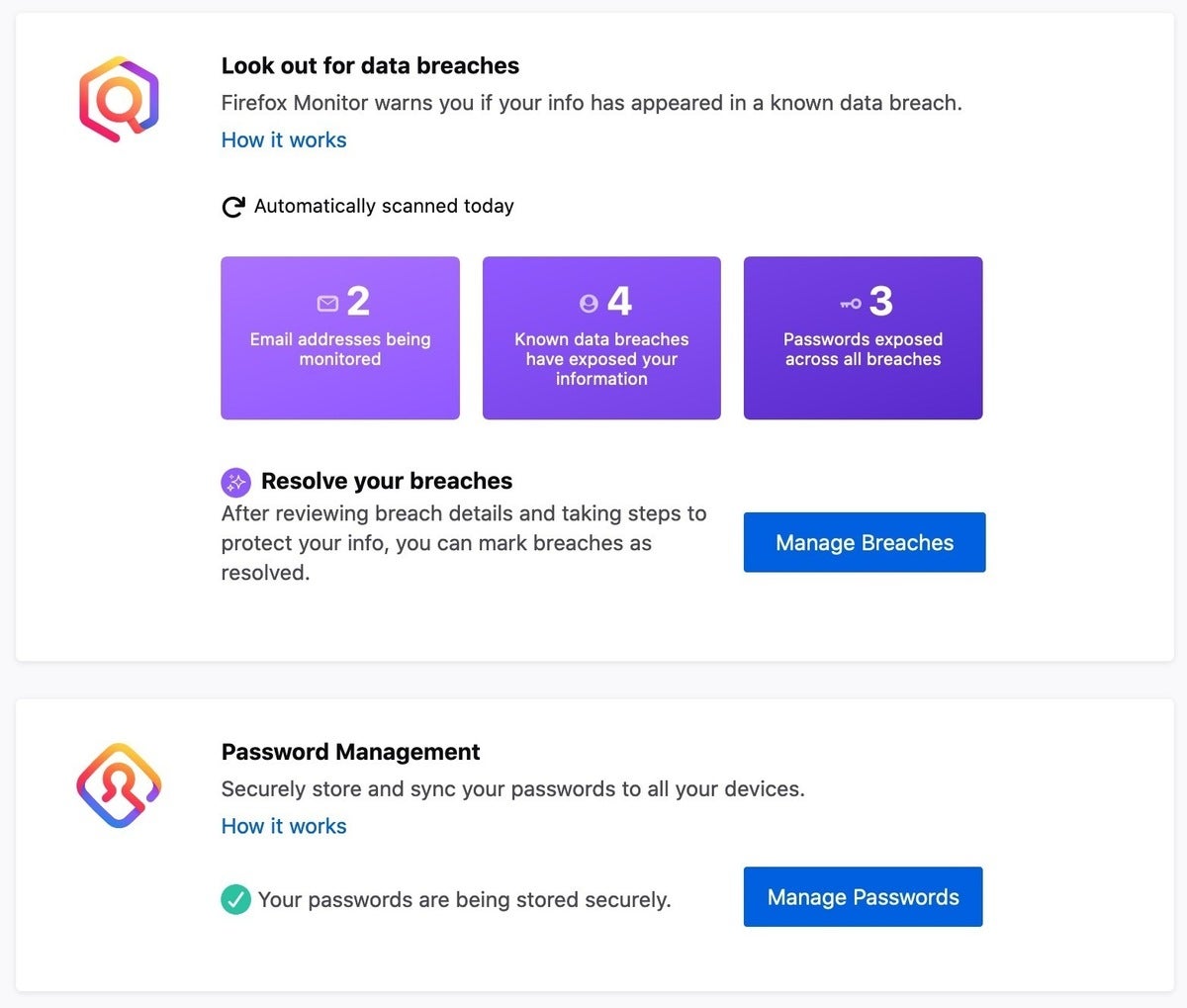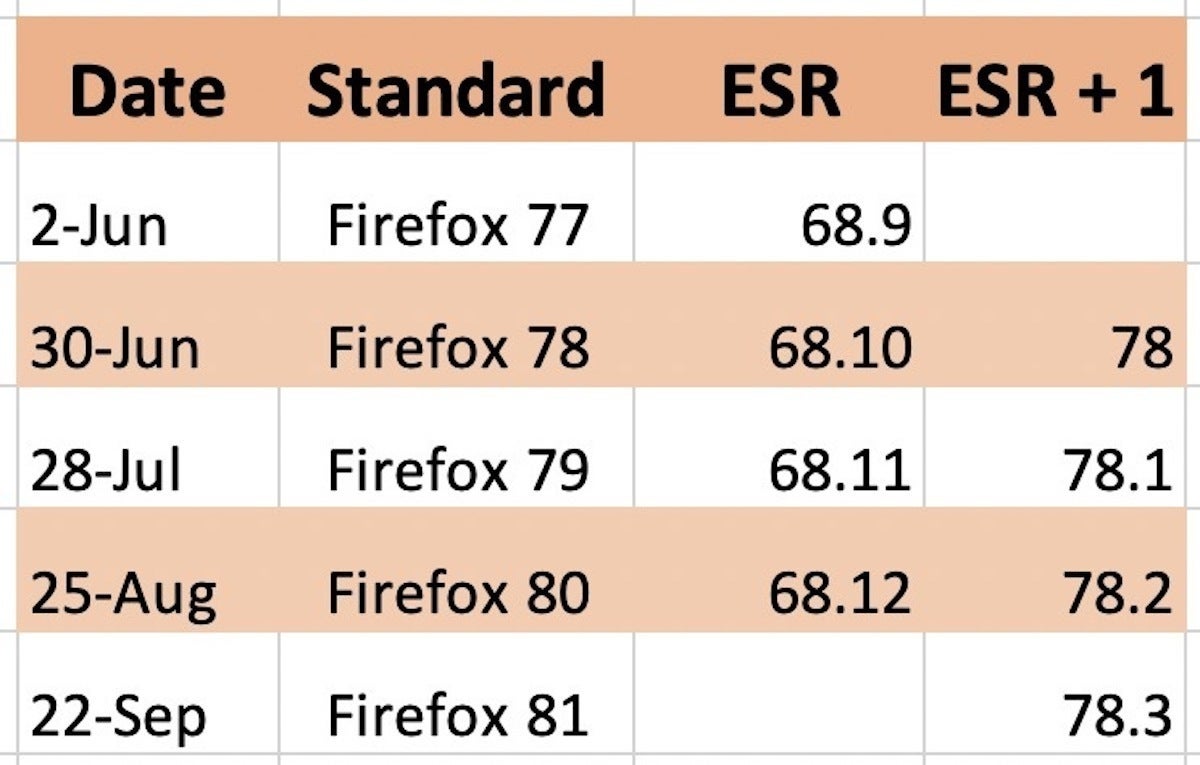Editor’s note: This story does not include details about Firefox version 77, which was released June 2. That update offered few changes from version 76.
Mozilla last week upgraded Firefox to version 78, patching a baker’s dozen of security flaws and starting the annual process of retiring last year’s Extended Support Release (ESR) and offering customers the latest enterprise-designed build.
Company engineers patched 13 vulnerabilities, seven labeled “High,” Firefox’s second-most-serious label. Unlike most Firefox refreshes, version 78 did not fix any bugs marked “Critical.”
Firefox 78 can be downloaded for Windows, macOS and Linux from Mozilla’s site. Because Firefox updates in the background, most users can simply relaunch the browser to get the latest version. To manually update on Windows, pull up the menu under the three horizontal bars at the upper right, then click the help icon (the question mark within a circle). Choose “About Firefox.” (On macOS, “About Firefox” can be found under the “Firefox” menu.) The resulting page shows that the browser is either up to date or describes the refresh process.
A day after Firefox 78’s debut, Mozilla updated the browser again to fix “an issue which could cause installed search engines to not be visible when upgrading from a previous release.”
Mozilla upgrades Firefox every four weeks, a much faster tempo than Google’s Chrome or Microsoft’s Edge. Mozilla last upgraded the browser on June 2.
More information on the privacy dashboard
Some Firefox updates are more notable than others, especially now that Mozilla is on an accelerated every-four-weeks schedule. Firefox 78 is one of the less notable upgrades.
Among the few visible-to-users changes are additions to the “Protections Dashboard,” the new name for the consolidated display of Firefox’s anti-tracking technologies’ results, known data breaches affecting the user and potential password problems. The dashboard carries on the gradual improvements Mozilla’s made to Firefox’s Enhanced Tracking Protection, which put Firefox in the lead last year in comprehensive quashing of the ad- and site-trackers which trace users’ web movements and actions.
The dashboard is a convenience, a slightly improved variation on what the browser has had for several iterations. New items on it show passwords that fell victim to known breaches as well as steps the user has already taken to mitigate said breaches (which may involve changing passwords, putting two-factor authentication into effect and the like).
Firefox’s Protections Dashboard can be called from the menu at the far right (the three horizontal lines) or by entering about:protections in the address bar.
 Mozilla
MozillaNew to the dashboard in Firefox 78 are indicators of user-resolved breaches and the status of the browser’s password management.
Also with Firefox 78, Mozilla began culling OS X 10.9 (Mavericks), 10.10 (Yosemite) and 10.11 (El Capitan) from support, automatically shifting users of those outdated Mac operating systems to the Extended Support Release (ESR).
ESR starts next transition
Firefox ESR, which traces roots to 2012, is the release channel crafted for enterprises that cannot – or will not – upgrade workers’ browsers every four weeks. Instead, approximately once a year, Mozilla issues a new ESR that then is supported until its replacement appears (plus a several-week overlap).
The concept grew from concerns by large organizations over the fast release schedule Firefox adopted nearly a decade ago; IT administrators balked at testing and adopting a new release every few weeks.
ESR would address that by accepting only the separate security updates Mozilla made (and distributed on the same every-four-week schedule used by its standard browser channel). New features would not be introduced to any given ESR version during its year-long run. Instead, users would “catch up” on feature and functionality changes when the next ESR was released.
To give enterprises time to test and roll out the next ERS, Mozilla would use an eight-week overlap during which it would release both the previous ESR (designated “n”) and its replacement (“n+1”).
Enterprises have been using Firefox ESR 68 since the summer of 2019, but its end nears. The next ESR is v. 78. Mozilla will refresh both ESRs on July 28 and Aug. 25; ESRs 68.11 and 78.1 will appear on the first date, ESRs 68.12 and 78.2 on the second. The next release cycle, slated for Sept. 22, will see only ESR 78.3; ESR 68’s support will come to an end that day.
The following table illustrates the changeover from one ESR to the next.
 IDG/Gregg Keizer
IDG/Gregg KeizerDuring an ESR transition, Mozilla issues two builds during a three-release cycle to give IT admins time to test and deploy the next static-for-a-year browser.
The next Mozilla upgrade, Firefox 79, will be released July 28.

